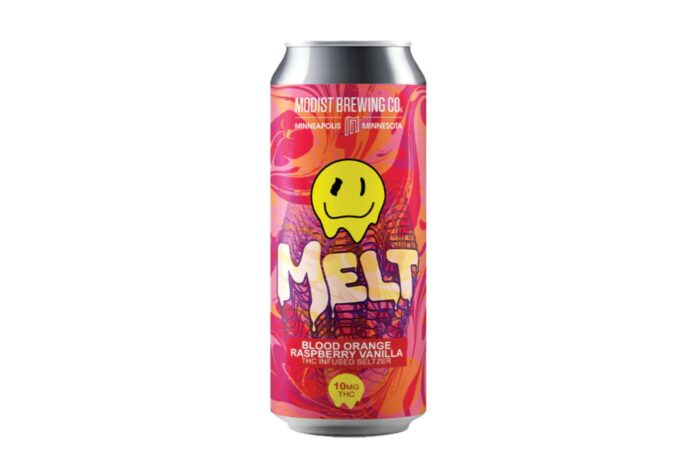After the extraordinary winter most of North America suffered through this year, the balmy weather of last May and June may feel like a figment of our imaginations. Fortunately, time is flying by, and friends and families soon will gather at the beach or for cookouts. There will be good music, great food, festive libations … and perhaps a new item will find its way onto the menu: infused beverages.
At first glance, it is easy to overlook or dismiss the beverage category. Infused beverages account for only 2.1 percent of total sales in Canada and 1.1 percent of sales in the United States. But those numbers don’t tell the entire story. Since the beginning of 2021, infused beverages’ market share has increased by nearly 40 percent on both sides of the border. The number of beverage brands has increased by 300 percent in Canada and 65 percent in the U.S.
Furthermore, Canadian provinces like Ontario, Saskatchewan, British Columbia, and Alberta have recorded year-over-year sales growth of 14 percent or more in the beverage category. Similarly, key U.S. markets like Michigan, Massachusetts, Washington, and California have recorded year-over-year sales growth of 10 percent or more in the category. With cannabis sales in the U.S. projected to surpass $45 billion by 2025, the future is extremely bright for beverages.
To gain a better understanding of the category, brands need to have a strong grasp of the following terms: seasonality, price, and demographic. This will allow them to understand where the category is and where it is heading.
Historically, consumers have gravitated toward infused beverages more often during the warmer months of the year. For the past two years, the category’s share within Canada’s market has risen noticeably between May and September. With this in mind, it is easier to understand why consumers are gravitating toward certain types of drinks. In Canada, carbonated beverages, iced teas, lemonades, and fruit-flavored drinks make up 73.6 percent of infused beverage sales. Similarly, these types of drinks make up 44.7 percent of infused beverage sales in the U.S. Additionally, drops, mixes, elixirs, and syrups account for 28.3 percent of beverage sales in the U.S.
Whether at a beach party on the Fourth of July or a cookout on Labor Day, it’s much more likely a person will choose an iced tea or a fruit-flavored seltzer over a hot tea. As a result, XMG’s Mango Pineapple Sparkling Drink, THC BioMed’s Kiss Mango Shot, and Collective Project’s CBD/THC 1:1 Blood Orange, Yuzu, and Vanilla Sparkling Juice have become three of the six most popular infused beverages in Canada. Farther south, Keef Cola’s Lemonade Mocktail, Major’s Pacific Coast Blue Raspberry Fruit Drink, and Levia’s Raspberry Lime Sativa Seltzer are among the most popular beverages in the U.S.
The popularity of infused beverages isn’t supported just by their ability to supply beachgoers and grillmasters with the perfect summer refresher. Consumers also have grown fond of beverages because they have become increasingly affordable over time. In Canada, the average price of an infused drink has dropped by 3 percent since 2021. In the U.S., the average price of infused beverages has dropped by 15 percent since 2021. Also, the equivalized price has gone up by more than 25 percent in both countries over the past two years.
The affordable nature of these popular products has continued to draw in millennial consumers. In both Canada and the U.S., millennials account for 45 percent of infused beverage sales. Diving deeper, Generation X consumers on both sides of the border continue to spend above what data would suggest.
There is a lot of opportunity in infused beverages, especially during a time when people are drinking less alcohol, particularly in the U.S. Continued innovation and expansion within the category will improve product selection for consumers. Beverages may be the seventh-most-popular category in 2023, but that very well could change in the years to come.














[…] a result, the percentage shares of total sales among vape pens, edibles, pre-rolls, concentrates, beverages, topicals, capsules, tinctures, and sublinguals fell below the average among adult-use markets […]
[…] in favor of keeping future possibilities open to us,” said Morrison. “It’s my goal to evolve as the market evolves, but it’s going to happen […]
[…] more than any other consumer-packaged-goods form factor, the beverage category has a tendency to follow trends. The once-fringe sparkling water brand LaCroix capitalized on a […]
[…] white-label services, Superior Molecular offers a solid option for brands hoping to cash in on the emerging infused-beverage space. With a combined twenty-five years of experience in food, liquor, chemistry, beverage […]